An example of humanitarian support from a small NGO
Prologue
This essay is a continuation of my ruminations about the humanitarian imperative, the edges of the humanitarian ecosystem, bending the moral arc of the universe toward justice, and basic human nature. It is mostly about a small act motivated by humanitarian concern and involving what I consider to be an array of everyday heroes.
Michael Kojo Orleans
Michael Orleans is a young tour company operator in Cape Coast Ghana. I met Michael 21 years ago in 1999 on a university organized faculty tour of Ghana. We had an immediate connection, and continued regular communication over the years; we have developed a close mentor-mentee relationship. Each of us has always felt strongly about our civic duties, and we have worked together on almost a dozen community outreach events in the last 15 years, 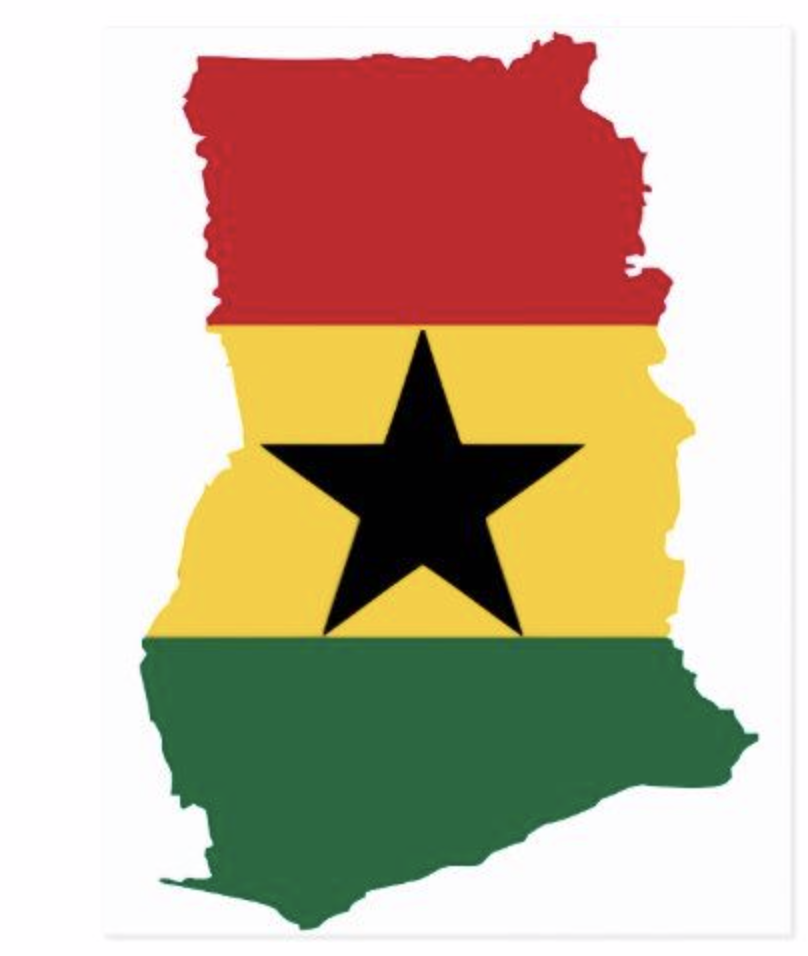 all in response to Michael’s knowledge of and sense of duty to his community and his ability to listen to those marginalized. About five years ago we started the Torch Foundation as the philanthropic branch of his tour company Torch Light Tours. This statement is on the website front page:
all in response to Michael’s knowledge of and sense of duty to his community and his ability to listen to those marginalized. About five years ago we started the Torch Foundation as the philanthropic branch of his tour company Torch Light Tours. This statement is on the website front page:
“The name ‘Torch Light Tours’ has a story behind it. The torch flame that we pass on represents the incandescent passion we have for Ghana and for giving back to our land and leaving indelible, positive footprints in the communities we visit. Our goal with every tour is that our flame will be passed on to our guests and that they in turn pass the flame on to others, creating a world full of passion for Ghana and all of Africa. A portion of all tour proceeds directly benefits children and families of Ghana.”
Michael and I had many talks about the impact of COVID-19 on both sides of the Atlantic. He was concerned about me in the US, a global hotspot for coronavirus still not yet flattening the curve in many states -North Carolina (where I live) included. I lamented the devastation to the tourism industry in Ghana, hurting Michael’s company. We both agreed though, that is was those already on the margins who were hurting the most.
Support requested for Metro
Just over a month ago Michael was contacted by a nurse from the Cape Coast Metropolitan Hospital asking for support. Built in 1938, Metro is one of the oldest hospitals in Ghana and is responsible for the the COVID-19 response in the Central Region. I wrote this blog post after Michael connected me to some staff at Metro Hospital and there you can find more background information. Michael contacted me and some of his other supporters about this request, and he and I again continued conversations we have had over the years about sustainable development.
For my part I have written about typically small MONGOs (My Own NGO) and know how, in general, they are viewed by those in the mainstream of the humanitarian sector. In short, we agreed that a one time donation to Metro would be a nice gesture, but would have no long lasting impacts. We decided that to make this fundraising effort have a larger, longer impact we needed to get the media involved. Micheal used his network of contacts to make this happen, with our assumption being that by highlighting the high impact of this hospital has in the community and the needs it has we might get the attention of those in government who have the power to make decisions benefiting Metro. Michael also talked with the administrative staff at Metro, asking what their needs were. We knew that cash was the best gift and that hospital staff would be able to best decide how to prioritize its use.
Delivery
Over the last several weeks Michael organized the fundraiser and on July 16 the outreach took place with the Medical Superintendent of the hospital, Dr Derek Acheampong Bonsu, accepting the donations on behalf of the hospital. Happily, the media was present and interviewed both Michael and Dr. Bonsu, and there were at least three outlets that ran the story. The outlet with perhaps the widest reach was My Joy Media which is listened to and read on line all over Ghana.
From the MyJoyMedia article written by Richard Kwadwo Nyarko,
“A travel and tours company based in Cape Coast, Torch Light Tours is making a passionate appeal to government to help fix the infrastructural defects at the Cape Coast Metro Hospital.
Built in 1938, the facility which is one of the Covid-19 centres in the Central Region needs major rehabilitation works due damage caused medical equipment and the infrastructure by the sea breeze.”
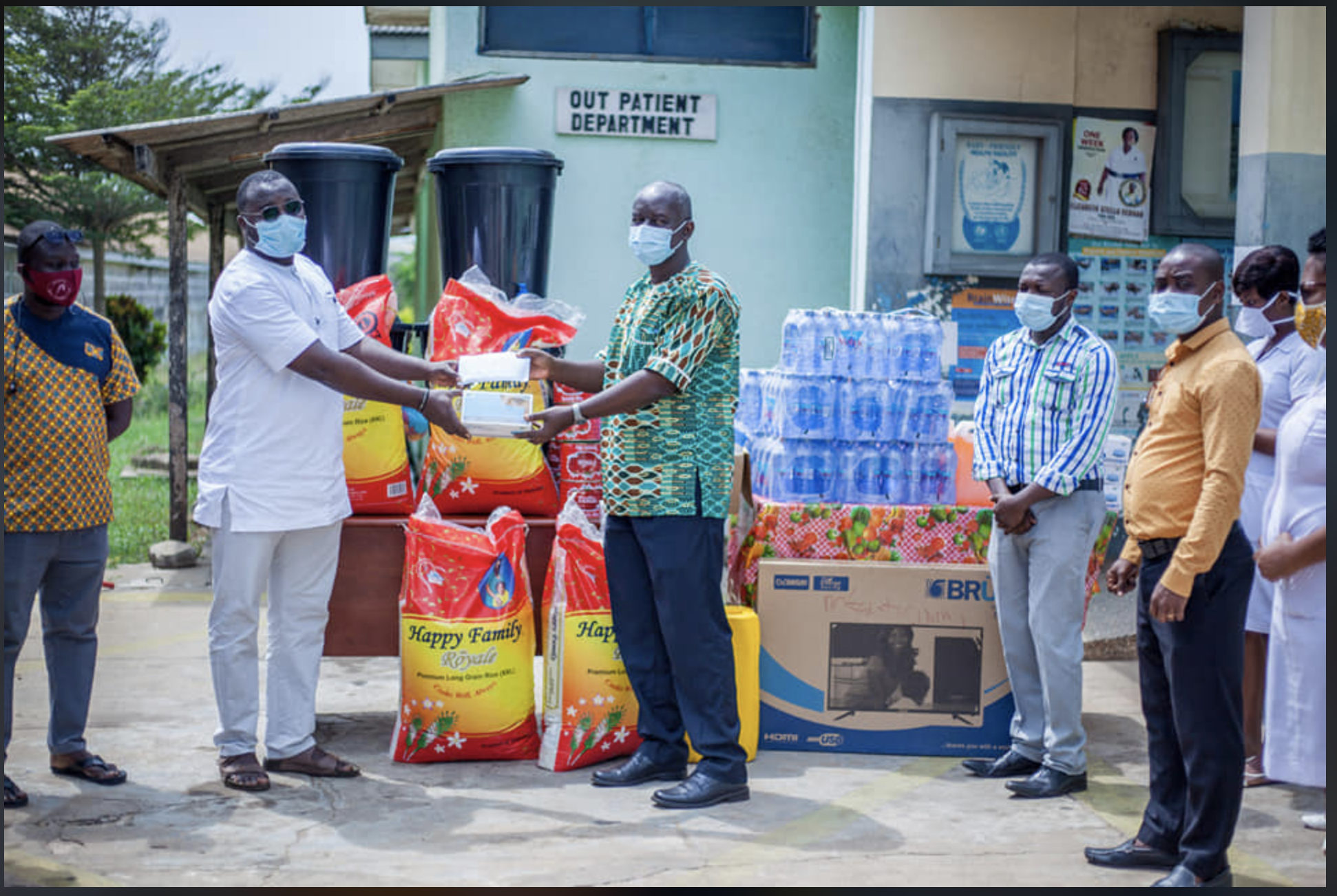
Stories from other major outlets:
- Here is the online article from Yarquah 1 on 1 written by Nana Yarquah titled ‘COVID 19: Touch Light Tours donate to Cape Coast Metropolitan Hospital.’
- ‘Torch Light Tours donates PPE to Cape Coast Metropolitan Hospital‘ was written for the Ghana News Agency by Nana Oye Gyimah and Mavis Paintsil.
Below is Michael’s video report featuring an interview with Dr. Bonsu.
Impact?
Only time will tell if the media attention generated by the donation from Torch Light Tours/Torch Foundation will get meaningful action from the Ghanian government. Those that have responded to Michael’s social media posts about the event seem optimistic.
In the short term, though, staff and patients at Metro were asked about the donation. Registered General Nurse Anastasia Ankomah is hopeful Metro Hospital will get a face lift and be able to continue delivering quality health care. She was specific about the need for both material and human resources, hoping that in these difficult moments 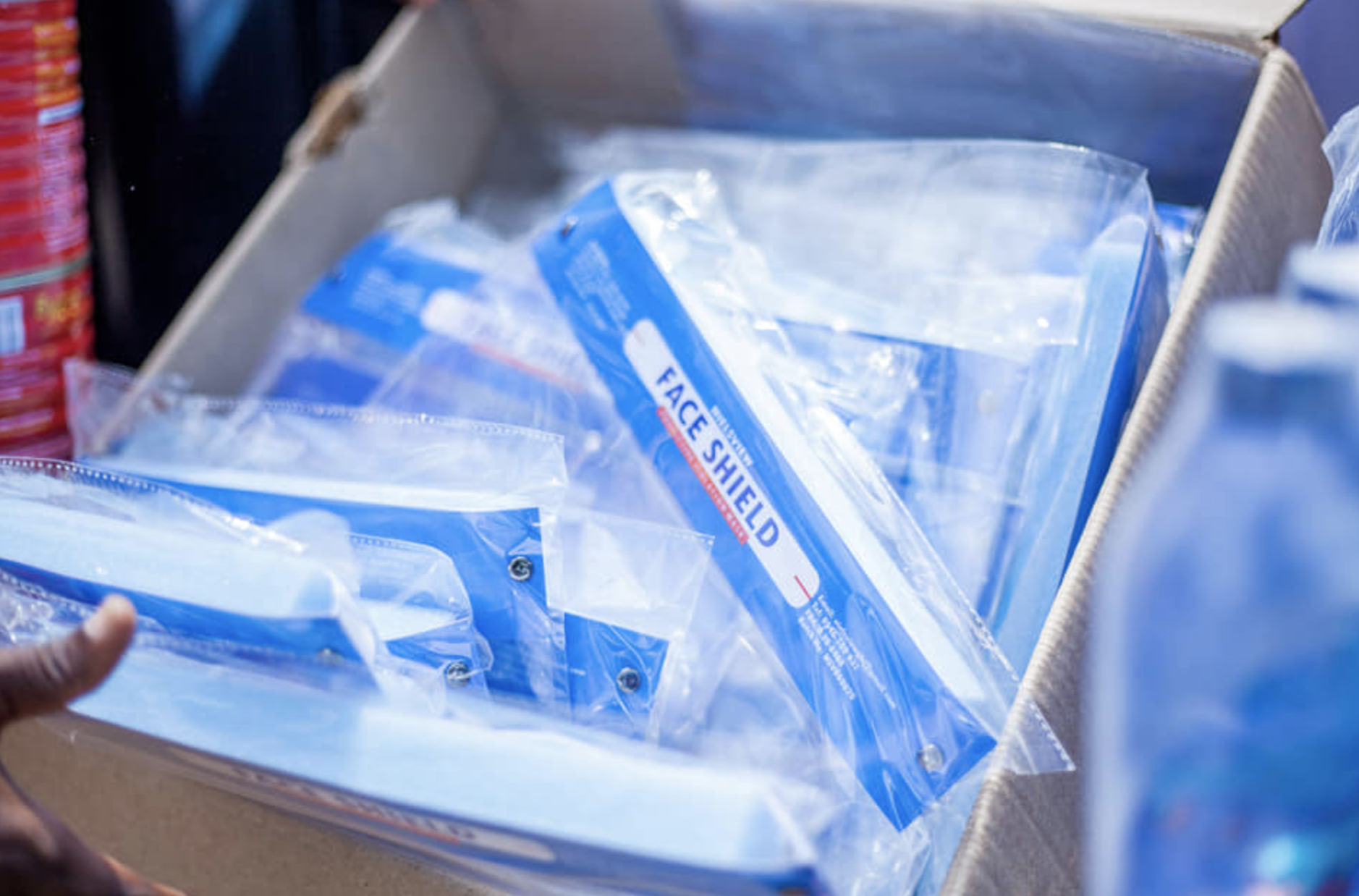 and adversities, this media attention could serve as an opportune moment to get the hospital back on track. This she asserts is both the responsibility of government and importantly the society to help the hospital. She believes the hospital has given so much to the society and it is time the society gives back to the hospital.
and adversities, this media attention could serve as an opportune moment to get the hospital back on track. This she asserts is both the responsibility of government and importantly the society to help the hospital. She believes the hospital has given so much to the society and it is time the society gives back to the hospital.
Head nurse at the surgery theater Rebecca Darkwa is also hopeful and optimistic that things will get better, but she noted there are some basic measures that should be put in place. She is of the view that though the hospital is doing great with its limited resources, in the near and far future the hospital will be able to improve on its health delivery. She believes the media attention the hospital has received in these difficult moments highlights the hospitals ability to take care of the Covid patients while at the same time going on with its usual routine health delivery.
One patient expressed her excitement with having the new TV in her COVID-19 ward. To her it’s key to their recovery. She said “watching the TV at times makes one forget he or she is sick, it takes my mind off the environment a bit and helps clear the head”.
Here’s what Nicholas Nyantakyi, an anesthetist at Metro Hospital had to say,
“Well these [dealing with COVID-19] are difficult times, turbulent moments. What keeps us going, what keeps humanity sane, what I believe is urging us on is that we are all hopeful. We cannot lose sight of being hopeful, because if we do that will be the moment we give up on our existence. In these difficult moments we are hopeful that it [this donation and the media attention] could be pivotal for addressing some if not all the
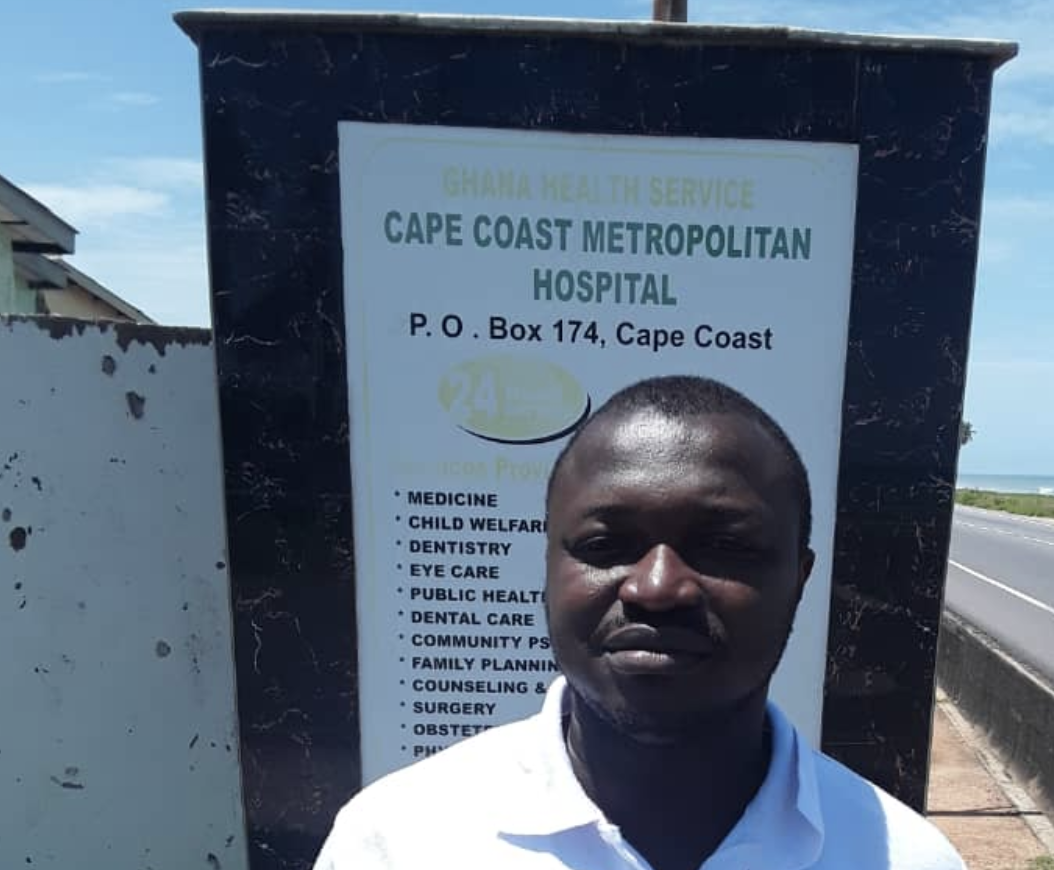
discrepancies in society, including our hospital that has given so much to the society.”
This moment of giving, of civic engagement organized by Michael was not his first nor likely be his last. We remain hopeful that actions like these are ‘moving the needle‘ in a positive direction.
Everyday heroes
There are well over 10 million NGOs globally with the US having the most, but a large number in virtually every nation on the globe, including Ghana with at least 200 non-governmental organizations. Many are small charities or advocacy organizations with a very local and specific mission and impact like the Torch Foundation, too small to make most official registries.
In the US alone an estimated $410 billion is donated to charitable organizations every year, with global giving many times that number. In context, the humanitarian sector spends about $20 billion per year delivering critical, life saving aid to those affected by natural and human-made disasters. Though at the margins of the humanitarian sector, NGOs have a huge impact.
The term ‘hero’ is elusive to define, but I do know that heroic acts are not ‘one offs’ but rather long series of actions, a way of being in the world characterized by a deep commitment to justice, brother/sisterhood, and a devotion to the cause of dignity for all.
Front line medical professions Dr. Bonsu, nurses Ankomah and Darkwa, and my new friend Mr. Nyantakyi are heroes. My old friend and mentee Michael is a hero. Not just because of this most recent act of community kindness but rather for a lifetime of partnership with those in need. They are exemplary individuals, responding to the humanitarian imperative as defined by the ICRC (International Red Cross and Red Crescent Movement), Code of Conduct, as “the right to receive humanitarian assistance, and to offer it”.
Human nature
My view of human nature is based on a ‘nature and nurture’ assumption. Through the interaction between our evolved basic wiring and our complex and ongoing socialization/cultural learning influences, we engage in a lifelong behavioral dance, with some of our actions more clearly influenced by our basic evolutionary tendencies than others. The anthropologist Miles Richardson said it best in his essay ‘Culture and the Struggle to be Human’ He noted,
“Instead of culture being a set of rules that guide our behavior, culture is that which we, both as anthropologists and as ordinary humans, create to give meaning to our behavior. Rather than thinking and then proceeding to act; we act and then proceed to explain.”
Though variously defined, we have found intelligence to be distributed in a population along a normal ‘bell shaped’ curve. Most people are within one standard deviation of the norm, with some on either extreme. Similarly, I feel that the 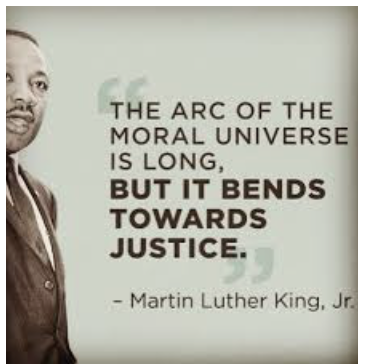 ability to embrace the humanitarian imperative is also spread along a similar curve. Some people are one or two standard deviation’s away from the norm on the positive side, naturally very empathetic and thus responsive to the humanitarian imperative, and a number of people on the opposite side of the continuum who are naturally repulsed by the idea of our shared humanity, i.e., some people are inherently selfish, narcissistic, and non-empathetic.
ability to embrace the humanitarian imperative is also spread along a similar curve. Some people are one or two standard deviation’s away from the norm on the positive side, naturally very empathetic and thus responsive to the humanitarian imperative, and a number of people on the opposite side of the continuum who are naturally repulsed by the idea of our shared humanity, i.e., some people are inherently selfish, narcissistic, and non-empathetic.
Examples of those on the positive side of the curve are the heroes I mentioned above. The key to bending the moral arc of the universe toward justice is creating cultural, legal, and normative systems where pathways to power and influence are created and sustained for those who are on the positive side of this continuum and, alternately, pathways to power and influence our inhibited for those who are inherently narcissistic. We need to resist and reverse the glorification and normalization of gluttony, greed and narcissism in our cultures. This magnitude of social change is necessary to confront what I have called the Hydra of privileging forces.
As always, please contact me at arcaro@elon.edu with questions, comments, our feedback.


 Follow
Follow